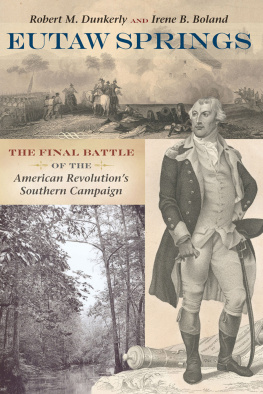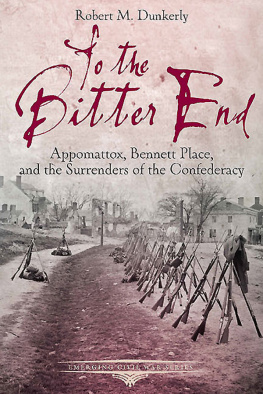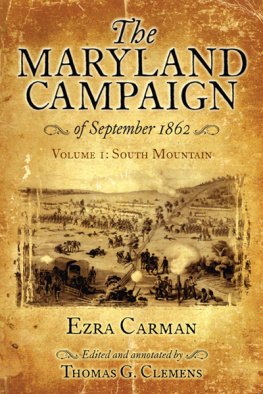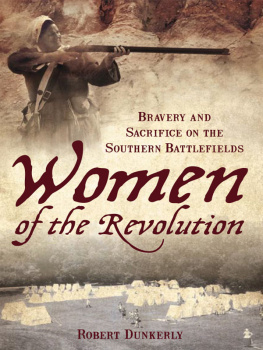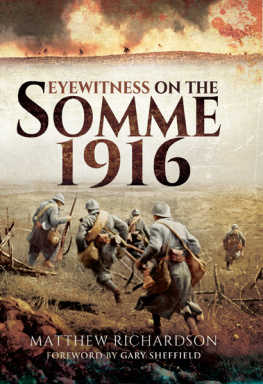Published by The History Press
Charleston, SC 29403
www.historypress.net
Copyright 2007 by Robert M. Dunkerly
All rights reserved
Cover Image: A painting by Dan Nance. www.dannance.com
First published 2007
Second printing 2008
Third printing 2011
Fourth printing 2012
Fifth printing 2013
e-book edition 2013
Manufactured in the United States
ISBN 978.1.62584.425.5
Library of Congress Cataloging-in-Publication Data
The Battle of Kings Mountain : eyewitness accounts / [edited by] Robert M. Dunkerly.
p. cm.
Includes bibliographical references.
print edition ISBN 978-1-59629-236-9 (alk. paper)
1. Kings Mountain, Battle of, S.C., 1780--Personal narratives. I. Dunkerly, Robert.
E241.K5B28 2007
973.336--dc22
2007000647
Notice: The information in this book is true and complete to the best of our knowledge. It is offered without guarantee on the part of the author or The History Press. The author and The History Press disclaim all liability in connection with the use of this book.
All rights reserved. No part of this book may be reproduced or transmitted in any form whatsoever without prior written permission from the publisher except in the case of brief quotations embodied in critical articles and reviews.
INTRODUCTION
On October 7, 1780, a severe battle raged on the steep, craggy hillsides at Kings Mountain, South Carolina. Two armies that had been marching for weeks finally came to grips here on this isolated ridge. The battle was unique for several reasons: it pitted Americans against each other as Rebels fought Loyalists, and it marked the high tide of British occupation of the state. Surprisingly, while many historians consider the battle a turning point, there has been no effort to collect and examine eyewitness accounts from the battle.
This book fills that need. While Lyman C. Drapers massive Kings Mountain and Its Heroes will always be the classic epic history of the battle, there are accounts to which Draper did not have access, chose not to use, used in part or edited from the original form. It is hoped that this work will further interest in the Kings Mountain campaign and be an aid to researchers.
Spelling, punctuation, abbreviation and other details of the accounts were preserved to capture the flavor of the originals. This allows us to see the writings as the veterans told their stories, using their writing and speaking style, expressions and spelling. This collection includes only actual accounts and pension statements by eyewitnesses or contemporaries.
The various conversations and statements found in Drapers book were not included, since these were often only fragments and without the whole dialogue, they are of little value. Many of Drapers sources were stories passed on by children, grandchildren or others who heard them from veterans. Only accounts written by the participants themselves are included here.
After the war, a controversy arose over American commander Colonel William Campbells actions in the battle. Several officers accused him of staying back during the fighting. Campbell, dead since 1781, could not defend himself, but several relatives and men who served with him did. A series of letters were exchanged discussing Campbells role in the battle, and only those with specific battle details are included. Draper included many of these statements at the end of his book, yet he edited them to fit his stylistic needs. They appear here in their original form in the Shelby-Campbell Controversy section.
A reference like this is needed to get to the true story. Many books about Kings Mountain quote participants or retell their stories, but this work is intended to present the men in their own words, with no filter. The battle of Kings Mountain lasted approximately one hour, yet for those who were there, it was no doubt the most exciting hour of their lives. Many Kings Mountain veterans lived into their nineties or beyond. Some died in the 1830s, 1840s or even 1850s. The oldest survivor, Robert Henry of North Carolina, died in 1863 at age ninety-eight. The longest living veteran was John Hammond, who lived until 1868, three years after the close of the Civil War.
This is a story of memories. Most of these men were in their seventies, eighties or nineties when they filed pension applications. Some memories are clouded; others are incredibly vivid. These men, Americans all, experienced things they would never totally forget at Kings Mountain. It is these storiesuncorrupted by historians, presented in their original formthat can speak directly to us.
In the heat of battle, did time slow down or stop? Did it speed up? Time is often either compressed or expanded for combat veterans. Few soldiers could see the larger picture: most rarely knew their own units role in the battle, much less the overall situation. When the bullets began to fly, most focused on their own actions: loading and firing, finding cover and advancing. The accounts must also be read carefully since many contain contradictory information; how do we reconcile two versions of the same event, like the deaths of Colonel James Williams and Major Patrick Ferguson, for example?
Colonel Samuel Newell, who in his accounts wrote often that I do not recollect, I believe and I am not certain. He tells us of the stress that he was under, writing, I had been nearly thirty-six hours without any kind of refreshments and marched under an almost constant torrent of rain. I had lost, by my wound, as much blood, perhaps, as any one could, and retain life; and my wound was then Extremely painful. Decades removed from the fact, how could details not become confused?
Private William Moore wrote how he acted during combat, explaining, I had neither time, nor inclination to be looking around during the action, except keeping my eyes upon the enemy, and occasionally seeing my own officers as they passed along. Going through the motionsloading, firing and watching the enemy shooting at himtook all his concentration during the battle.
Modern readers should also know that both sides referred to their own militias, which may be confusing. While the Americans had a militia system in place, the British established one in South Carolina in the summer of 1780. Major Patrick Ferguson organized seven Loyalist militia regiments at Ninety Six, and parts of those regiments fought at Kings Mountain.
Reading the accounts will make one point very apparent: the nature of militia service meant that families served together. These accounts mention fathers and sons, brothers, uncles and cousins serving together (or, in some cases, on opposite sides).
A surprisingly large number of the Whigs not only survived the battle and the war but also went on to file pensions. About 910 Americans fought in the battle; roughly 27 were killed that day and another 3 were mortally wounded, giving a total loss of 30. Fifteen more died before the close of the war, either in other battles or of natural causes, including the commander, Colonel William Campbell. Out of the 910 combatants, 45 died by the end of the war. The majority of those survivors filed pensions or statements about their service. According to Dr. Bobby Mosss research, 664 federal pensions were filed for service at Kings Mountain, an incredibly large percentage. This has truly been a blessing, as these are often an invaluable source of information. Most pension applications merely state a solider was at Kings Mountain, but a few contained amazing details of the battle.


